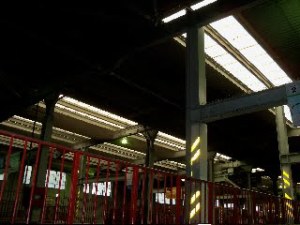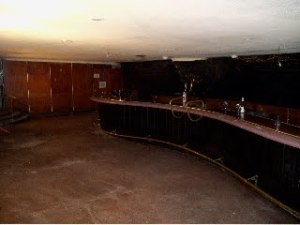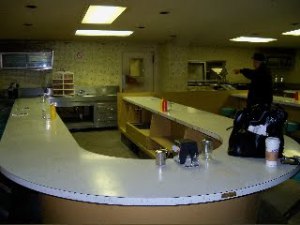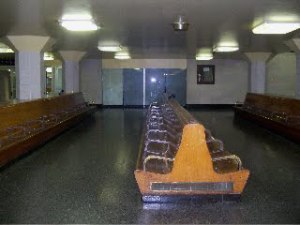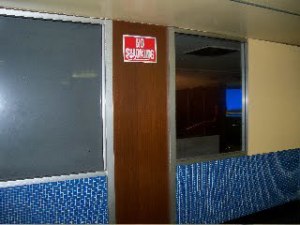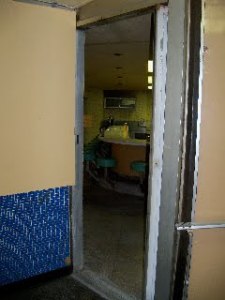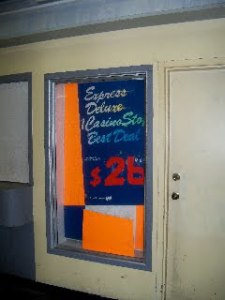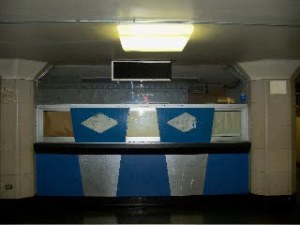July 30, 2010
In a few days, San Francisco’s Transbay Terminal will be closed forever. The art moderne structure by Timothy Pflueger has outlived its usefulness. In the last year, I have been taking the bus home some days, and I’ve been appalled at the condition of the building. Dark, smelly, and boarded-up, it felt doomed. Although it was never awe inspiring, it was once a strong, light-filled, utilitarian structure. For suburban kids like me, it was the portal to all the excitement that urban life had in store. The entryway was the building’s most significant architectural gesture. You walked down a ramp and emerged into a huge light-filled space that said, “Adventure is just outside.”
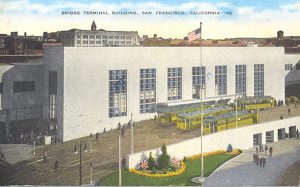
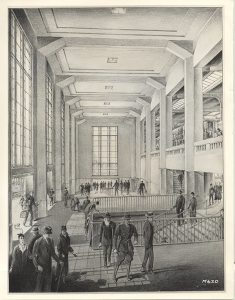
It really looked like this before they filled it in with the Greyhound platform.
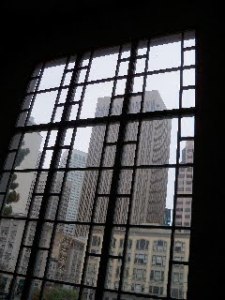
The city’s pleasures were just outside.
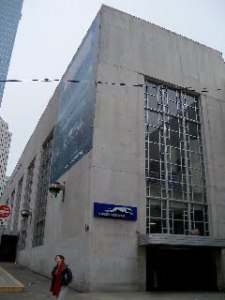
At rush hour the ramps were filled with organization men returning home.
My father rode the H bus from our home in the East Bay to the Transbay Terminal for close to three decades. He was not a North of Market dandy, but a South of Market organization man, toiling for the phone company. When we were very small, he worked in the art deco jewel (also by Pflueger) at 140 New Montgomery Street. When the new building at 666 Folsom was finished, I enjoyed following him on his back-alley pathways to work. 666 Folsom was the ugliest place I had ever been in, and I remember thinking, “I can never work in an office.” But I liked the cafeteria. Except for a few years in college, I rarely worked in a traditional corporate office. My dad would take his lunch hour to walk all over South of Market and had nodding acquaintances with hundreds of people, including the sculptor Benny Bufano. But the doorway to his work world South of Market was the Transbay Terminal.
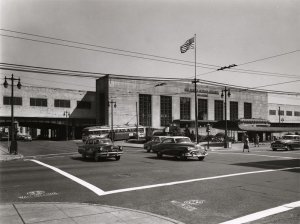
This is how I remember it as a kid.
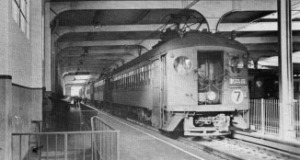
The trains stopped running in the late 50s.
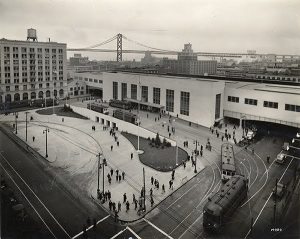
It was handsome once upon a time.
It always felt like a train station, even though the Key trains stopped running around the time I was born. Squint your eyes and the diffuse light from above and the vertical metal supports almost transported you to Europe. Later, after Loma Prieta, horizontal seismic beams compromised the spatial experience. When the building was renovated a number of years ago, they inserted a balcony space for Greyhound that filled in the entryway. In the fall of 1976, I took the H bus myself, walked out to the trolley car stop, and took the M Oceanview all the way out to San Francisco State University. It was my own life now. Without that tall entry space, there was no transition, no portal, no architecture left.
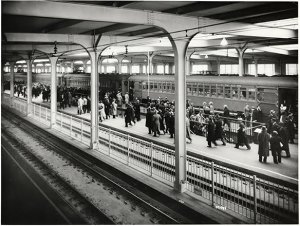
photo courtesy of the San Francisco History Center, San Francisco Public Library
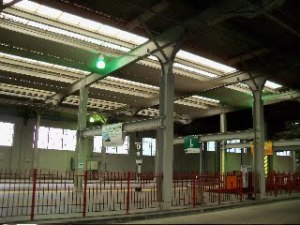
The seismic reinforcements took away the sense of space.
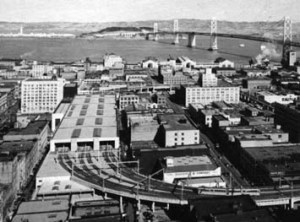
It was basically a shed with parking beneath and a huge front porch.
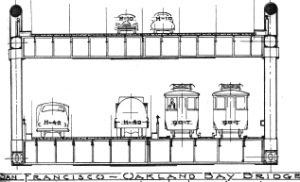
The Key system trains ran on the lower level of the Bay Bridge.
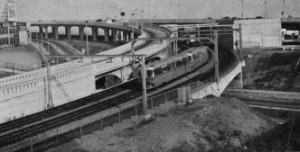
The interurbans actually worked!
This morning in the newspaper, they announced that you could see the cocktail lounge, coffee shop, and shoeshine stand that had been covered up for years. The authorities swept the bums out, tried to clean out the urine odors, and gave us sentimental folks a last look. Nobody was asleep on the miles of wood benches. The coffee shop and bar were empty and smelled like stale cigarettes.
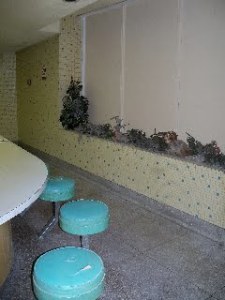
Love those stools and the plastic flowers that look very dead.
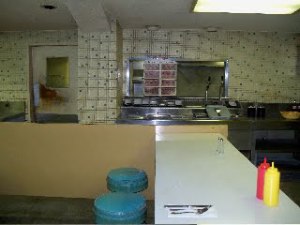
I don’t remember ever eating there.
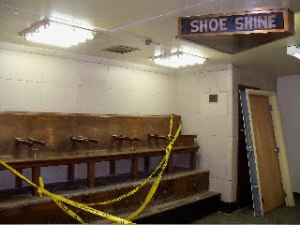
This was hidden behind a wall.
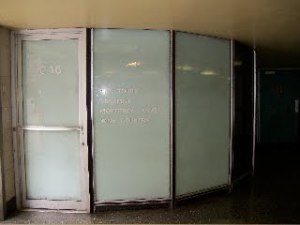
The metal version of the office on the east side of the lower entry.
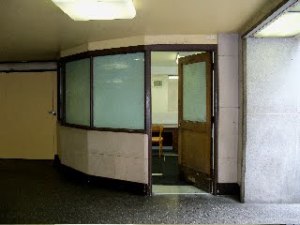
The original version of the office on the west side of the lower entry.
